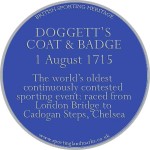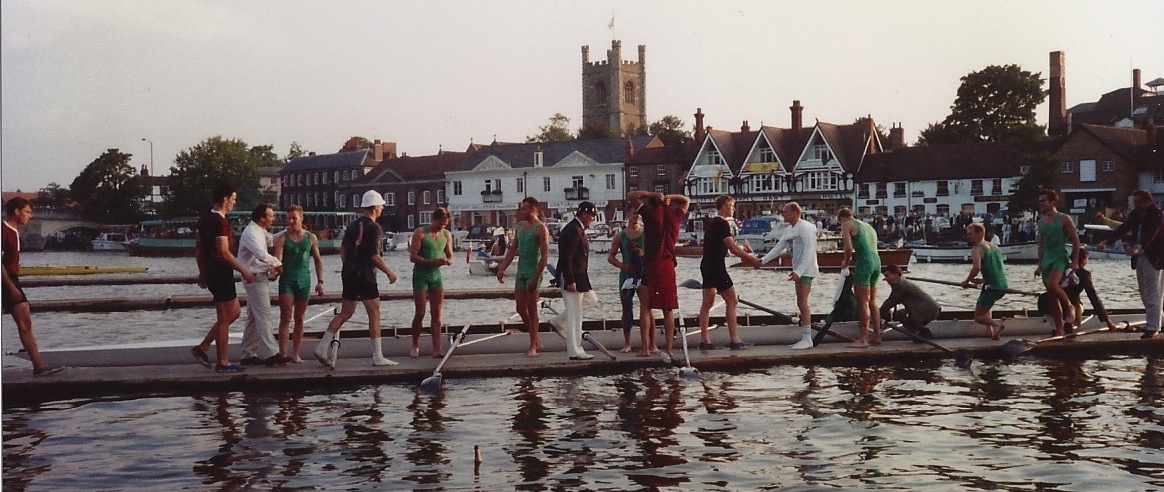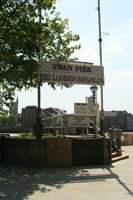
As an oarsman, for many years I’ve been aware of the claim that the Doggett’s Coat & Badge is the oldest, continuously-contested, sporting event still contested in the world today.
Thomas Doggett (c1640 – 1721) was an Irish-born comic actor who trod the boards at the Theatre Royal, Drury Lane. Later, he became involved in managing the theatre before moving on to the Theatre Royal Haymarket around the time of its opening in 1720.
During years of commuting by river from his home in Chelsea to Westminster, Doggett developed an interest in the skills of the watermen who had been providing the most efficient means of moving passengers and goods around London for several centuries. (London’s watermen have been regulated since an Act of Parliament passed in 1555 that created the Company of Watermen.)
In 1715, to commemorate the first anniversary of the accession of George I and the House of Hanover, Doggett organised a race for young London watermen who had recently completed their apprenticeships. The race, for a prize of a scarlet 18th century waterman’s coat with a silver badge on the arm and white breeches, was staged on 1 August. The start was at the White Swan near London Bridge with the finishing line at the Old Swan, near Cadogan Steps in Chelsea – a distance of four miles seven furlongs.
The race became an annual event – organised by Doggett himself until his death in 1721. (He is burried in St John’s churchyard, Eltham High Street.)
In his will, Doggett instructed his executors to endow the race in perpetuity. Perhaps shrewdly, the executors offered an endowment of £300 to encourage the Company of Fishmongers to take over the staging of the race.
Initially raced against the tide on August 1st, the rules have subsequently been modified so that now the contestants row with the strongest tide. Now managed by the Company of Watermen, today the race is staged on a date in July determined by the time of high tide. The 296th race took place on 10 July 2009. Sadly, the race achieved no detectable media coverage apart from a posting – since disappeared – on the Thames Rowing Club website. Is this lack of interest a throw-back to the historic resistance to professionalism of a rowing establishment dominated for so long by the public schools and universities? Or just another example of the challenge the so-called “minority sports” face when trying to compete against football for column inches?
These barriers are breaking down. Watermen are no longer prohibited from competing in domestic rowing events. Indeed, Mark Hunter, winner of an Olympic Gold medal in the lightweight doubles in Beijing and silver medalist at London 2012, is himself a qualified waterman and freeman of the Thames. He was elected as a Steward of Henley Royal Regatta in 2013.
In 2000, as an apprentice, Mark competed in, and won, the Millennium Coat and Badge race for double sculls made up of a freeman sculling with an apprentice. Sadly, circumstances conspired to prevent Mark from racing in the Doggett’s Coat and Badge – he was too old by the time he passed his final exams. Mark’s younger brother, and fellow member of Leander Club – a one-time bastion of archetypal English amateurism – did win the Coat & Badge in 2006.
The Race now has its own website which includes a listing of all the known winners since 1716.




